IR Home
ECI
Home
Aims
Awards
Call for Nominations
ECI Prize
IRPE Prize
OKF
Staff
Excellence in Ecology
Journals
Home
MEPS
AME
CR
DAO
ESEP
ESR
Search
Subscribe
Book Series
EE Books
Top Books
ESEP Books
Order
EEIU Brochures
(pdf format)
Discussion Forums
Home
Research
IR Research
Institutions
International Ecology Institute
Eco-Ethics International Union
Foundation
Otto Kinne Foundation
 |  |
ECI Prize
The ECI Prize is awarded to an ecologist distinguished by outstanding and sustained scientific achievements. The prize both honors the recipient and requires him or her to serve science and society by authoring a book taking into account the ECI's aims. The book is published in the series 'Excellence in Ecology' (EE) and made available worldwide on a non-profit basis. A large number of books are donated to libraries in Third World countries. EE books invite authors to present their personal experiences, insights and visions, to criticize freely, and to courageously formulate new scientific concepts. The ECI Prize carries an endowment of Euro 6000. Call for nominations.
ECI Prize Laureates and Their Major Scientific Achievements
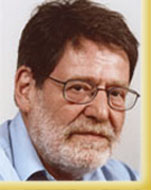 Tom Fenchel (Helsingør, Denmark), ECI Prize winner 1986 in marine ecology.
Tom Fenchel (Helsingør, Denmark), ECI Prize winner 1986 in marine ecology.
Quotation of the Jury (Chairman: John Gray, Oslo, Norway):
The Jury found Professor T. Fenchel's contribution to ecological knowledge in a variety of research fields to be of the highest international class. In particular, the Jury cites his brilliant and uniquely important studies on the microbial loop which have opened up a fundamentally new research field. Professor Fenchel is, in addition, an excellent publicizer in his field of research with authorship of a number of standard works in marine ecology.
Book 1: Ecology - Potentials and Limitations. (Published 1987) |
 Edward O. Wilson
(Cambridge, MA, USA), ECI Prize winner 1987 in terrestrial ecology.
Edward O. Wilson
(Cambridge, MA, USA), ECI Prize winner 1987 in terrestrial ecology.
Quotation of the Jury (Chairman: Sir Richard Southwood, Oxford, UK):
Professor E. O. Wilson is distinguished for his many contributions
to different aspects of ecology and evolutionary biology. His life-time
love of Nature, a theme explored in his book 'Biophilia', has been
particularized in his study of ants leading to major new insights
on the evolution of castes and the operation of social systems. His
seminal 'Sociobiology', derived from this work, has founded a new
branch of science, between ecology and the social sciences. With the
late Robert MacArthur he was the originator of the modern theories
of island biogeography that have contributed not only to the understanding
of island biota, but to community and population ecology.
Book 2: Success and Dominance in Ecosystems: The Case of the Social
Insects. (Published 1990) Photo: Jon Chase/Harvard |
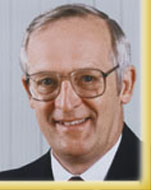 Gene E. Likens (Millbrook, NY, USA), ECI Prize winner 1988 in limnetic ecology.
Gene E. Likens (Millbrook, NY, USA), ECI Prize winner 1988 in limnetic ecology.
Quotation of the Jury (Chairman: William D. Williams, Adelaide, Australia):
Gene Likens is a distinguished limnologist who has made salient contributions to many fields of limnology. In 1962 he initiated and developed (with F. H. Bormann) the Hubbard Brook Ecosystem Study in New Hampshire. Comprehensive investigations in this study provided a model for ecological and biogeochemical studies worldwide. A major finding of the study was that rain and snow are highly acidic. 'Acid rain' is now recognized as one of the major environmental hazards in North America, Europe and elsewhere. Elected to the American Academy of Sciences in 1979, and the National Academy of Sciences in 1981, Gene Likens is a highly worthy recipient of the 1988 ECI Prize in Limnetic Ecology.
Book 3: The Ecosystem Approach: Its Use and Abuse. (Published 1992) |
 Robert T. Paine
(Seattle, WA, USA), ECI Prize winner 1989 in marine ecology.
Robert T. Paine
(Seattle, WA, USA), ECI Prize winner 1989 in marine ecology.
Quotation of the Jury (Chairman: Tom Fenchel, Helsingør, Denmark):
Robert T. Paine has made substantial and original contributions to marine biology and to ecology in general. In particular the Jury mentions the discovery of the role of patch formation and properties of food web structure in shaping communities of sedentary organisms. These studies (of which several have become classics of marine ecology) have fundamentally changed the way in which we view marine benthic communities. This work has also served as an inspiration for innovation in the mathematical description of community processes and has had a lasting impact on our understanding of 'landscape dynamics', of equal importance to the development of the science of ecology and to conservation ecology.
Book 4: Marine Rocky Shores and Community Ecology: An Experimentalist's Perspective. (Published 1994) |
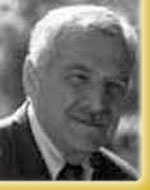 Harold A. Mooney
(Stanford, CA, USA), ECI Prize winner 1990 in terrestrial ecology.
Harold A. Mooney
(Stanford, CA, USA), ECI Prize winner 1990 in terrestrial ecology.
Quotation of the Jury (Chairman: John L. Harper, Penmaenmawr, UK):
Professor Harold A. Mooney is distinguished for his studies of the physiological ecology of plants, especially of arctic-alpine and mediterranean species. He has explored the ways in which plants allocate carbon resources and expressed this allocation in terms of costs, benefits and trade-offs. This has given a quantitative dimension to the study of plant-animal interactions and acted to integrate physiological ecology with population biology, community ecology, and ecosystem studies.
Book 5: The Globalization of Ecological Thought. (Published 1998) |
 Robert H. Peters
(Montreal, PQ, Canada), ECI Prize winner 1991 in limnetic ecology.
Robert H. Peters
(Montreal, PQ, Canada), ECI Prize winner 1991 in limnetic ecology.
Quotation of the Jury (Chairman: Jürgen Overbeck, Plön, Germany):
Professor R. H. Peters' contributions to the fields of limnology and ecology have been numerous and far reaching. His work on phosphorus cycling in lakes provides examples of excellent research illuminating a number of important aspects regarding the movement and availability of phosphorus in aquatic systems. His book 'The Ecological Implications of Body Size' gives a powerful overview of the utility of allometric relationships for the study of ecological problems and for building ecologic altheory.
Book 6: Science and Limnology. (Published 1995). Authors: The late F. H. Rigler and R. H. Peters |
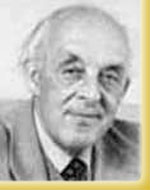 David H. Cushing
(Lowestoft, United Kingdom), ECI Prize winner 1992 in marine ecology.
David H. Cushing
(Lowestoft, United Kingdom), ECI Prize winner 1992 in marine ecology.
Quotation of the Jury (Chairman: John Costlow, Beaufort, NC, USA):
Dr. David H. Cushing has, for many years, made an enormous contribution to the field of marine ecology through his numerous publications and his original ideas. His work continues to be highly influential in fisheries and plankton ecology. Although first published over ten years ago, his pioneering studies on the dynamics of a plankton patch, the feeding of copepods, the 'match-mismatch' theory of recruitment and the climatic influences on plankton and fisheries remain of central importance.
Book 7: Towards a Science of Recruitment in Fish Populations. (Published 1996) |
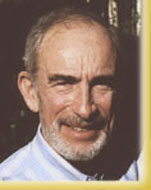 Paul R. Ehrlich (Stanford, CA, USA), ECI Prize winner 1993 in terrestrial ecology.
Paul R. Ehrlich (Stanford, CA, USA), ECI Prize winner 1993 in terrestrial ecology.
Quotation of the Jury (Chairman: Harold A. Mooney, Stanford, CA, USA):
Dr. Paul Ehrlich's scientific contributions have been substantial and sustained. The quality and depth of his interpretation of environmental issues to students, the general public, and to policy makers is unrivaled. His concern for both environmental quality and environmental justice has rarely been matched. He has made fundamental contributions to the study of population biology utilizing butterflies as a model system. These studies have had a large impact on how we view the population structure of organisms and have provided important guidelines on the conservation of wild populations.
Book 8: A World of Wounds: Ecologists and the Human Dilemma. (Published 1997) |
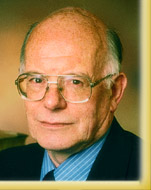 Colin S. Reynolds
(Ambleside, UK), ECI Prize winner 1994 in limnetic ecology.
Colin S. Reynolds
(Ambleside, UK), ECI Prize winner 1994 in limnetic ecology.
Quotation of the Jury (Chairman: William D. Williams, Adelaide, Australia):
The research of Dr. Colin S. Reynolds in algology has several components interfacing with other biological disciplines, and, indeed, other sciences. He has pursued his research in depth and great detail and yet been able to relate and apply findings to holistic analysis of ecosystem function. Thus, his contributions to our understanding of the dynamic controls and responses of planktonic algae have provided new insight into several controversial areas of ecology. Dr. Reynolds' ideas have also been widely applied in the water industry to reduce the impact of algal growth in reservoirs. His conversion of these ideas into mathematical models has resulted in a vastly increased application of his knowledge to the benefit of society.
Book 9: Vegetation Processes in the Pelagic: A Model for Ecosystem Theory. (Published 1997) |
 Ramon Margalef
(Barcelona, Spain), ECI Prize winner 1995 in marine ecology.
Ramon Margalef
(Barcelona, Spain), ECI Prize winner 1995 in marine ecology.
Quotation of the Jury (Chairman: Ernest Naylor, Menai Bridge, UK):
Ramon Margalef is generally acknowledged to be the most prominent marine ecologist that Spain has produced. He has excelled in the study of unicellular algae, developing the paradigm of phytoplankton organization when previously such organisms were considered to be in unstructured suspension. He also pioneered the use of multidimensional statistical analyses in wider studies of marine plankton. The contributions which he has made to theoretical ecology have brought him particularly high international prestige, and have made him one of the most frequently quoted contemporary ecologists. As one reviewer of his work has noted, 'Margalef's ideas have provoked thought, an enviable encomium for any scientist'.
Book 10: Our Biosphere. (Published 1997) |
 John H. Lawton
(Ascot, United Kingdom), ECI Prize winner 1996 in terrestrial ecology.
John H. Lawton
(Ascot, United Kingdom), ECI Prize winner 1996 in terrestrial ecology.
Quotation of the Jury (Chairman: Ilkka Hanski, Helsinki, Finland):
The ECI Jury selected John Lawton for his distinguished conceptual, theoretical and empirical contributions to population, community and ecosystem ecology since the early 1970s. Lawton is perhaps best known for his elegant and comprehensive work on folivorous insects, including a long-term research project on the food web structure of bracken insects. He is also one of the leaders in macroecology, the study of large-scale patterns in animal and plant communities.
Book 11: Community Ecology in a Changing World. (Published 2000) |
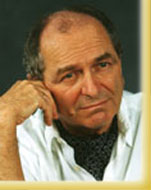 Z. Maciej Gliwicz (Warsaw, Poland), ECI Prize winner 1997 in limnetic ecology.
Z. Maciej Gliwicz (Warsaw, Poland), ECI Prize winner 1997 in limnetic ecology.
Quotation of the Jury (Chairman: Winfried Lampert, Plön, Germany):
Since the early 1970s, Maciej Gliwicz has exerted an outstanding impact on freshwater plankton ecology. He has laid the foundations for our current understanding of the mechanisms of phytoplankton-zooplankton interactions. For example, he pioneered the work on selective feeding by zooplankton and mechanical interference by inedible algae. His studies on the relative impact of bottom-up and top-down forces in plankton communities and on the evolution and constraints of defense mechanisms have greatly influenced modern lake ecosystem and trophic cascade theory. Maciej Gliwicz has always been in favor of unusual ideas, and, with his legendary enthusiasm, he has become a creative and thoughtful leader in evolutionary aquatic ecology.
Book 12: The Ecology of an Offshore Animal: Between Hazards of Starvation and Risk of Predation (Published 2003) |
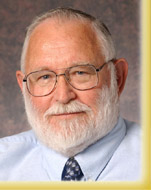 Richard T. Barber
(Beaufort, NC, USA), ECI Prize winner 1998 in marine ecology.
Richard T. Barber
(Beaufort, NC, USA), ECI Prize winner 1998 in marine ecology.
Quotation of the Jury (Chairman: B.-O. Jansson, Stockholm, Sweden):
Richard T. Barber studied the productivity of coastal-upwelling ecosystems off California, Ecuador, Peru, North Africa and the Arabian Sea. One of the strongest advocates of the integration of biological oceanography with physical and chemical oceanography both in field work and numerical modelling as early as the 1960s, he has had a large share in the shaping of modern oceanography to a unified discipline. His own intensive time series work on the eastern side of the Pacific led to the first detailed documentation of the biological effects of the El Niño episode 1982/83, long before El Niño phenomena attracted general attention. Barber also documented the 1991/92 episode. He played a leading role in the testing of the iron hypothesis, which is based on iron being one of the limiting elements for primary production in the open ocean. The international test expedition he initiated to the tropical eastern Pacific was an outstanding success, receiving considerable attention in leading scientific journals. Dr. Barber has been able to develop constructive working relationships with scientists and research institutes in disadvantaged countries - in particular Peru and Ecuador - and in China.
Book 13: The Response of Oceanic Ecosystems to the Climate of the 21st Century (In preparation) |
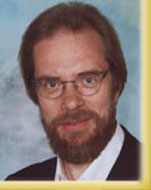 Ilkka Hanski (Helsinki, Finland), ECI Prize winner 1999 in terrestrial ecology.
Ilkka Hanski (Helsinki, Finland), ECI Prize winner 1999 in terrestrial ecology.
Quotation of the Jury (Chairman: F.A. Bazzaz, Cambridge, Massachusetts):
Ilkka Hanski's research in population and community ecology spans 20 years. His work is characterized by a combination of theory, modelling and empirical research. Though he has worked on a range of taxa and questions, most of his research has focussed on the spatial structure and dynamics of populations. Spatial ecology has developed into an important area of ecology over the past 10 years, and Hanski's research has made significant contributions to this development. In the 1970s and early 1980s, much of Hanski's research was on small-scale spatial structure of populations, the empirical work being done on insects living in ephemeral microhabitats. Hanski demonstrated how intraspecifically aggregated spatial distributions of species may facilitate coexistence of competitors, and how a generalist predator using the spatially aggregated prey species may have the same effect. Experimental work on blowflies supported these predictions and may help to explain high species richness in insect communities. In the late 1980s, Hanski's research shifted to larger spatial scales and to metapopulations. He has made major contributions to both theoretical and empirical aspects in the field, and edited, together with Michael Gilpin, the two most widely read volumes in metapopulation biology (Metapopulation Dynamics, 1991, and Metapopulation Biology, 1997).
Book 14: Habitat Loss and its Biological Consequences (tentative title; in preparation) |
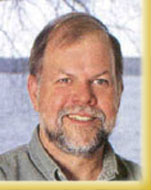 Stephen R. Carpenter(Madison, Wisconsin), ECI Prize winner 2000 in limnetic ecology.
Stephen R. Carpenter(Madison, Wisconsin), ECI Prize winner 2000 in limnetic ecology.
Quotation of the Jury (Chairman: Wolfgang Wieser, Innsbruck, Austria):
Stephen R. Carpenter, Halverson Professor of Limnology and Professor of Zoology at the University of Wisconsin-Madison, USA, is a leader in ecosystem science. His demonstrations of the role of fish in controlling lake productivity and nutrient cycling have brought whole-ecosystem experimentation to a new level of sophistication. Carpenter leads a multidisciplionary research team that has manipulated fish community structure and nutrient inputs of entire lake ecosystems. These large-scale experiments demonstrated trophic cascades through the food web, altering primary production, nutrient cycling, and gas exchange between lakes and the atmosphere. Carpenter has received many awards for distinguished research, including the R.E. Hutchinson Medal of the American Society of Limnology and Oceanography, the R.H. MacArthur Award from the Ecological Society of America, and the Per Brinck Award in Limnology. In 1999 he assumed leadership of the North Temperate Lakes LTER site, a collaboration of more than 20 principal investigators from 7 academic departments and 2 agencies, studying long-term lake dynamics, land-water interactions, and the interactions of people and lakes in rural and urban regions. Recently Carpenter was elected President of the Ecological Society of America.
Book 15: Regime Shifts in Lake Ecosystems: Pattern and Variation. (Published 2003) |
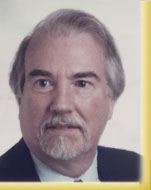 Louis Legendre
(Villefranche-sur-Mer, France), ECI Prize winner 2001 in marine ecology.
Louis Legendre
(Villefranche-sur-Mer, France), ECI Prize winner 2001 in marine ecology.
Quotation of the Jury (Chairman: Richard T. Barber, Beauford, NC, USA):
Professor Louis Legendre has advanced our understanding of how ocean
ecosystems function. Elegantly integrating observation, experimentation
and theory, Legendre's work contributes both pragmatic and
theoretical advances. He pioneered the concept of hydrodynamic control of
biogenic carbon fluxes in open ocean and coastal regimes, an advance that
has importance for the future course of carbon partitioning in a world
significantly altered by anthropogenic activities. His wide-ranging
investigations relating physical processes to biological responses led him
to develop the concept of "Dynamic Biological Oceanography." Based in part
on the seasonal physical progression that characterizes high temperate and
polar oceans, this broad concept involves a mechanistic understanding of
species succession, photoadaptation, nutrient limitation, temperature
responses, grazing and sedimentation. That Legendre's contributions
are characterized by unusual quantitative rigor is evidenced by his
participation in the creation and development of the new discipline of
"numerical ecology." In conclusion, we cite Prof. Legendre's long-term
project of developing a unified theoretical framework for biological
oceanography, an ambitious undertaking that is still in progress.
Book 16: Scientific Research and Discovery: Process, Consequences and Practice (Published 2004) |
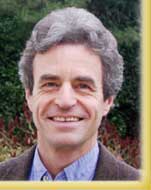 Michel Loreau
(Paris, France), ECI Prize winner 2002 in terrestrial ecology.
Michel Loreau
(Paris, France), ECI Prize winner 2002 in terrestrial ecology.
Quotation of the Jury (Chairman: Paul Ehrlich, Stanford, CA, USA):
The Jury found that Professor Michel Loreau has contributed in a number of significant ways to important increases in ecological knowledge. His ability to use models to explore the effects of phenomena at the level of communities to make predictions about the ecosystem level provides for novel experimental approaches to fields of ecology with a strong descriptive basis. In this way, his theoretical and empirical insights have contributed significantly to the integration of different branches of ecology. The studies of Michel Loreau will have great impact on applied ecology and issues of conservation biology related to the ecosystem effects of climatic change. His many important papers in international journals of the highest rank are widely known and have strongly influenced a new generation of ecologists. Michel Loreau is a highly worthy recipient of the 2002 ECI Prize in Terrestrial Ecology.
Book 17: Linking community and ecosystem ecology (tentative title; in preparation) |
 Jonathan J.Cole (Millbrook, NY, USA), ECI Prize Winner 2003 in Limnetic Ecology
Jonathan J.Cole (Millbrook, NY, USA), ECI Prize Winner 2003 in Limnetic Ecology
Quotation of the Jury (Chairman: Colin Reynolds, Ambleside,UK):
The innovative studies of Jonathan Cole have achieved distinction in several areas of aquatic biology, especially in microbial ecology, nutrient biogeochemistry and carbon cycling. Challenging and controversial, his investigations of bacterial activity and its contribution to the gas balance in lake systems have succeeded in establishing fresh insights into the relationships between primary productivity, microorganisms and the metabolism of lakes within the broader context of their hydrological landscapes. Jonathan Cole has a proven ability to synthesise his own work and that of others, melding a wider, integral understanding of the ways in which lakes function. He is among the true leaders of contemporary ecology.
Book 18: Multiple roles of freshwater ecosystems in the carbon cycle (tentative title; in preparation) |
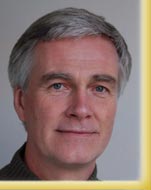 Bo Barker Jørgensen (Bremen, Germany), ECI Prize winner 2004 in marine ecology
Bo Barker Jørgensen (Bremen, Germany), ECI Prize winner 2004 in marine ecology
Quotation of the Jury (Chairmann: Victor Smetacek, Bremerhaven, Germany):
Bo Barker Jørgensen's qualitative and quantitative description of the microbial sulphur cycle in marine sediments revolutionised microbial ecology and biogeochemistry. Ever since his early career he has continued to play a leading role in aquatic microbiology. In 1992 Jørgensen was invited to found and co-direct the Max Planck Institute for Marine Microbiology in Bremen. His combination of skills, especially his ability to stimulate and inspire scientists around him, established the institute at the cutting edge of international research from the start. Together with his co-workers, he has demonstrated the limiting role of molecular diffusion for process rates, showed how different element cycles interact and discovered novel physiological types of microorganisms. Bo is amongst the 'highly cited scientists' of ISI. In 2004 he was presented the Hutchinson Award by the American Society of Limnology and Oceanography. In addition to his outstanding scientific attributes he is a very likeable man, known to his students as the 'silent giant'.
Book 19: Anoxic ecosystems and biogeochemical cycles (in preparation) |

This page was last updated on 21 February 2005
|

